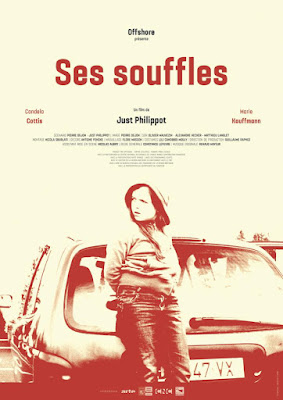
I'd say that all writing – even biography – is to a large extent autobiographical: we're writing our personal findings, even if they're about someone else, and we select according to own own tastes and opinions, deleting others we don't like or which conflict with our own. If we mention the 'real' name of that someone else, then we expect people to recognise that the person talked about is that same person, although of course we're only giving a biased representation of that person, even if we quote liberally. It's at that point that 'reality' and fiction collide, but what if the artist, the person making the work, calls particular individuals by different names? Is this a collision of 'reality' with fiction, or just fiction tout court?
The noted film director Arnaud Desplechin – perhaps the best of his generation to judge by his professional and amateur reviews – made three films in which Marianne Denicourt was a major actor: the medium-length La Vie des morts (1991), La Sentinelle (1992) and Comment je me suis disputé...(ma vie sexuelle). Denicourt was Desplechin's partner for some years, although how many isn't clear. Certainly by the time of Desplechin's Esther Kahn (2000) she doesn't appear in the casting.
Then in 2004 Desplechin makes the film Rois et reine and there's a huge problem: Denicourt complains that Desplechin has in effect invaded her life and exposed intimate details about it. Rois et reine was released in December 2004, and the co-written book Mauvais génie was published in January 2005.
In April 2006 Desplechin won a court case against Denicourt, in which it was decreed that art isn't life, film doesn't consist of slices of real life. The Nora in Rois et reine isn't Denicourt, and Denicourt wasn't entitled to the 200,000 euros damages she claimed. Interesting.
Denicourt and Perrignon's novel – in which she calls the film director Arnold Duplancher – is therefore booted out of court, irrelevant. Desplechin may have been a little indelicate at times, but... In the book, Juliette Binoche had refused a major part in the film, considering it a 'réglement de comptes' (or settling of debts), seems to have seen Nora as Marianne, but the court has ruled that art is art.
Marianne Denicourt includes a number of letters – either true or false or a mixture of both – between various people, including those of 'Arnaud Duplancher' to herself and a final one of hers to him, 'Duplancher's' letter to her ex-partner Daniel Auteil, etc. 'Duplancher' comes out of the, er, novel, as egotistical, addicted to prescription tranquillisers, hated by everyone apart from himself, a genius perhaps but wildly flawed in personality. This is fascinating reading. One of my favourite comments, and I translate:
'Sometimes, in the privacy of his flat, he leans down to his navel, where since he was little he likes to clean out the fluff left there by his pullovers.' (The works of Arnaud Desplechin are among the many films and books which have been accused of 'nombrilisme', or navel-gazing.)










































